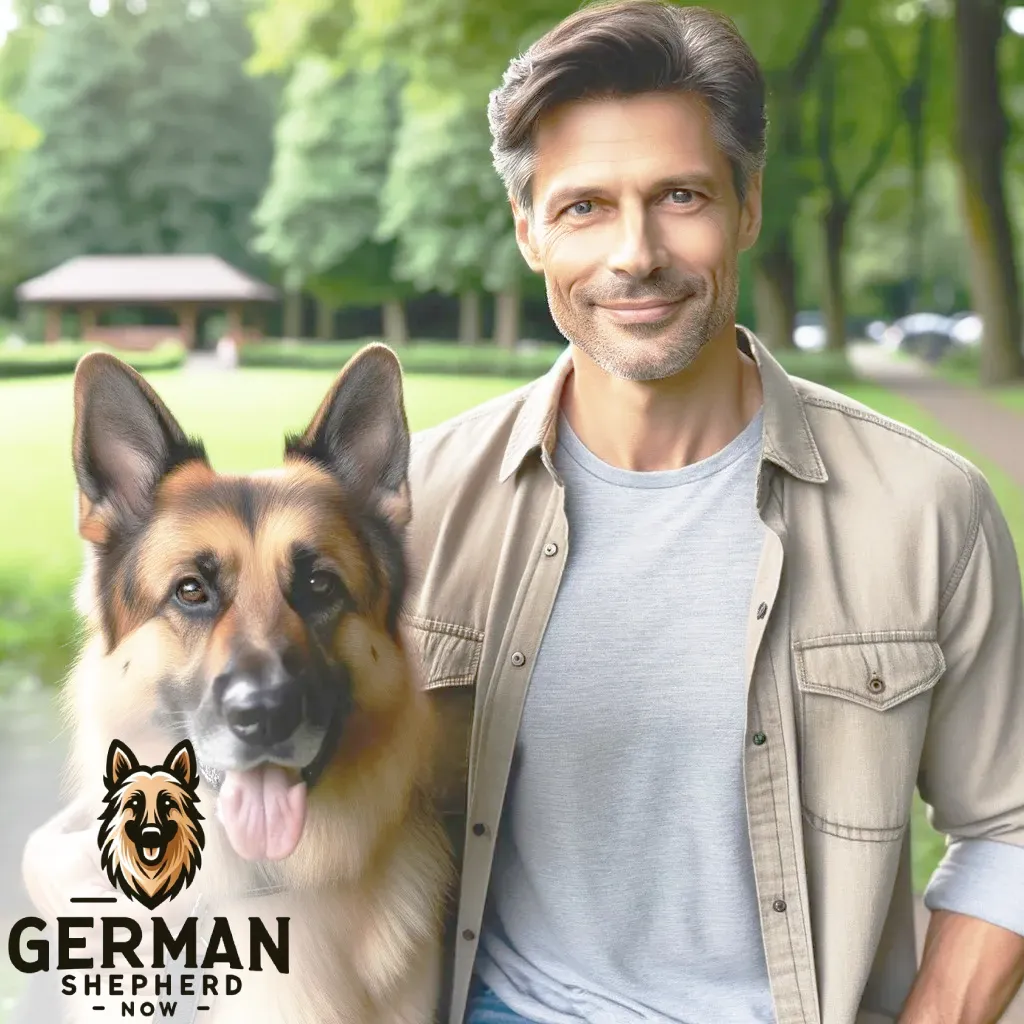1-Month-Old German Shepherd

Raising a German Shepherd puppy is an exciting journey filled with joy and challenges. At just one month old, these curious little pups start exploring a new world of sights, smells, and experiences. With their ears perked up and eyes wide open, they’re ready to embrace a life full of loyalty, intelligence, and companionship.
Bringing one of these furry friends into your home will delight you with their endless enthusiasm and eagerness to learn, creating a bond that deepens daily. While raising a German Shepherd requires commitment, the rewards are immense as you watch your relationship with one of the most loyal and versatile breeds blossom.
How to Care for a 1-Month-Old German Shepherd
Welcoming a one-month-old German Shepherd puppy into your home is an exciting time filled with anticipation and joy. As these young pups begin their journey in the world, providing them with the care and guidance they need to thrive is essential.
Nutrition and Feeding Schedule
At one-month-old, German Shepherd puppies are still nursing from their mother, but they may also start to show interest in solid food. Providing a balanced diet that supports their growth and development is essential.
Consult your veterinarian to determine the best feeding schedule and transition plan to introduce puppy food. Offer small, frequent meals throughout the day and ensure access to fresh water.
Socialization and Training
Early socialization is crucial for German Shepherd puppies to develop into well-adjusted and confident adults. Expose your puppy to various people, animals, and environments in a positive and controlled manner.
Encourage positive interactions and use positive reinforcement techniques during training sessions. Start with basic obedience commands like sit, stay, and come, and be patient and consistent.
Healthcare and Veterinary Visits
Regular veterinary care is essential for monitoring your one-month-old German Shepherd’s health and addressing concerns. Schedule vaccinations and deworming treatments as recommended by your veterinarian.
Keep up with flea and tick prevention measures, and maintain good hygiene by grooming your puppy. Monitor your puppy’s growth and development, and seek veterinary advice if you notice any changes in behavior or appetite.
Exercise and Mental Stimulation
While one-month-old German Shepherd puppies are still developing, they benefit from gentle exercise and mental stimulation. Provide opportunities for supervised playtime in a safe and secure environment, avoiding excessive physical exertion.
Engage your puppy in interactive games and toys that encourage problem-solving and cognitive development. Balance activity with rest to prevent overexertion and ensure adequate sleep.
Creating a Safe and Comfortable Environment
Ensure that your home is safe and puppy-proofed to prevent accidents and injuries. Remove potential hazards such as toxic plants, small objects, and electrical cords. Provide a comfortable and secure sleeping area for your puppy, such as a crate or bed with soft bedding.
Create a routine that includes regular feeding, potty breaks, playtime, and rest to establish a sense of structure and stability for your puppy.
Diet for 1-Month-Old German Shepherd
Feeding a one-month-old German Shepherd puppy is vital for their care and growth. They’re moving from nursing to solid food at this stage, needing a diet that fosters development and gives vital nutrients.
Introducing appropriate foods now lays the groundwork for a robust and flourishing canine friend.
Introduction to Solid Foods
Around the one-month mark, German Shepherd puppies begin to wean off their mother’s milk and transition to solid foods. While they may still nurse, their nutritional needs expand to include a balanced diet of puppy-specific food. Introducing solid foods allows puppies to adjust to the new diet while ensuring adequate nutrition for optimal growth and development.
Choosing the Right Puppy Food
Selecting the right puppy food is paramount for the health and well-being of your one-month-old German Shepherd. Look for high-quality puppy food formulated for large breeds to support their rapid growth and development. Opt for brands that meet the Association of American Feed Control Officials (AAFCO) standards, ensuring the food provides essential nutrients in the right proportions.
Feeding Schedule and Portions
Establishing a feeding schedule and controlling portions is crucial for managing your one-month-old German Shepherd’s diet. Offer them small, frequent meals throughout the day to match their small stomach capacity and avoid overeating. Divide their daily food intake into multiple meals, spaced apart, to ensure consistent energy levels and support healthy digestion.
Nutritional Requirements
One-month-old German Shepherd puppies have specific nutritional requirements for their growth and development. Their diet should balance protein, carbohydrates, fats, vitamins, and minerals. Protein is especially crucial for building strong muscles and tissues, while carbohydrates provide energy for their active lifestyle. Ensure your chosen food contains nutrients like calcium and phosphorus to support bone development and health.
Transitioning to Solid Foods
When transitioning your one-month-old German Shepherd to solid foods, blend a small quantity of puppy food with warm water or milk replacer to form a soft, mushy mixture. Enhance the ratio of solid food while decreasing the liquid until your puppy consumes dry kibble. Keep an eye on their appetite and stool consistency throughout the transition, making necessary adjustments to their diet to ensure they eat well and digest their food.
Training Your 1-Month-Old German Shepherd
Training a 1-month-old German Shepherd puppy is crucial for laying the groundwork for their development and behavior. At this tender age, these bright and eager-to-learn pups absorb information and experiences from their surroundings like sponges. Although formal obedience training may not be feasible until age, you can still employ several gentle and effective techniques to shape their behavior and introduce basic commands.
1. Socialization: Introduce Them to New Experiences
Socialization is crucial for German Shepherd puppies, even at one month old. Exposure to various people, animals, sounds, and environments helps them become confident and well-adjusted adults. Take your puppy on short outings to different places, such as parks, sidewalks, or pet-friendly stores, where they can encounter new sights and sounds in a safe and controlled manner. Encourage positive interactions with people and other animals, rewarding calm and friendly behavior with praise and treats.
2. Positive Reinforcement: Reward Good Behavior
Positive reinforcement is one of the most effective training techniques for German Shepherds of any age, including puppies as young as one month old. Use small, soft treats or verbal praise to reward your puppy when they exhibit desired behaviors, such as sitting, staying calm, or using the bathroom outside. Be consistent with your rewards and praise, and avoid punishing or scolding your puppy for mistakes or accidents, as this can lead to fear or anxiety.
3. Basic Commands: Begin with Simple Tasks
While formal obedience training may be premature for a 1-month-old German Shepherd, you can still introduce them to basic commands. Begin with simple tasks like “sit” or “come,” using treats and positive reinforcement to motivate your puppy to comply.
Keep training sessions short and engaging. Focus on one command at a time and increase the difficulty as your puppy learns and progresses.
4. Crate Training: Create a Safe Space
Crate training can be beneficial for both you and your German Shepherd puppy. It provides them with a safe and secure space to rest and relax while helping with housebreaking and separation anxiety.
Introduce your puppy to their crate, making it a comfortable and inviting environment with soft bedding and favorite toys. Use positive reinforcement to encourage them to enter the crate and avoid using it as punishment.
5. Supervision: Monitor Their Behavior
Remember that supervision is key when training a 1-month-old German Shepherd puppy. Keep a close eye on them at all times, especially when exploring new environments or interacting with other animals.
Correct any undesirable behaviors and redirect their attention to more appropriate activities. You can lay the groundwork for a well-behaved and obedient German Shepherd companion with patience, consistency, and plenty of love.
Conclusion
Caring for a one-month-old German Shepherd puppy requires patience, commitment, and love. Providing your puppy with the care and guidance it needs during these formative weeks will lay the foundation for a strong and lasting bond that will enrich your lives for years.
As you watch your puppy grow and thrive, you’ll be rewarded with the joy and companionship of one of the world’s most beloved canine companions.

I’m Martin, and I grew up in the super cool city of Seattle. You know, the place with all the incredible mountains and forests? Yeah, that’s my playground!
Ever since I was little, I’ve been all about nature. I used to wander around the woods with a notebook, doodling all the cool plants and animals I’d find.
